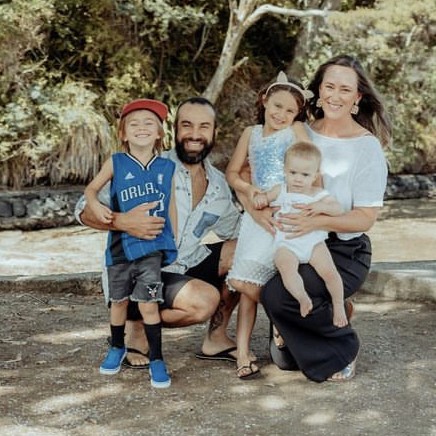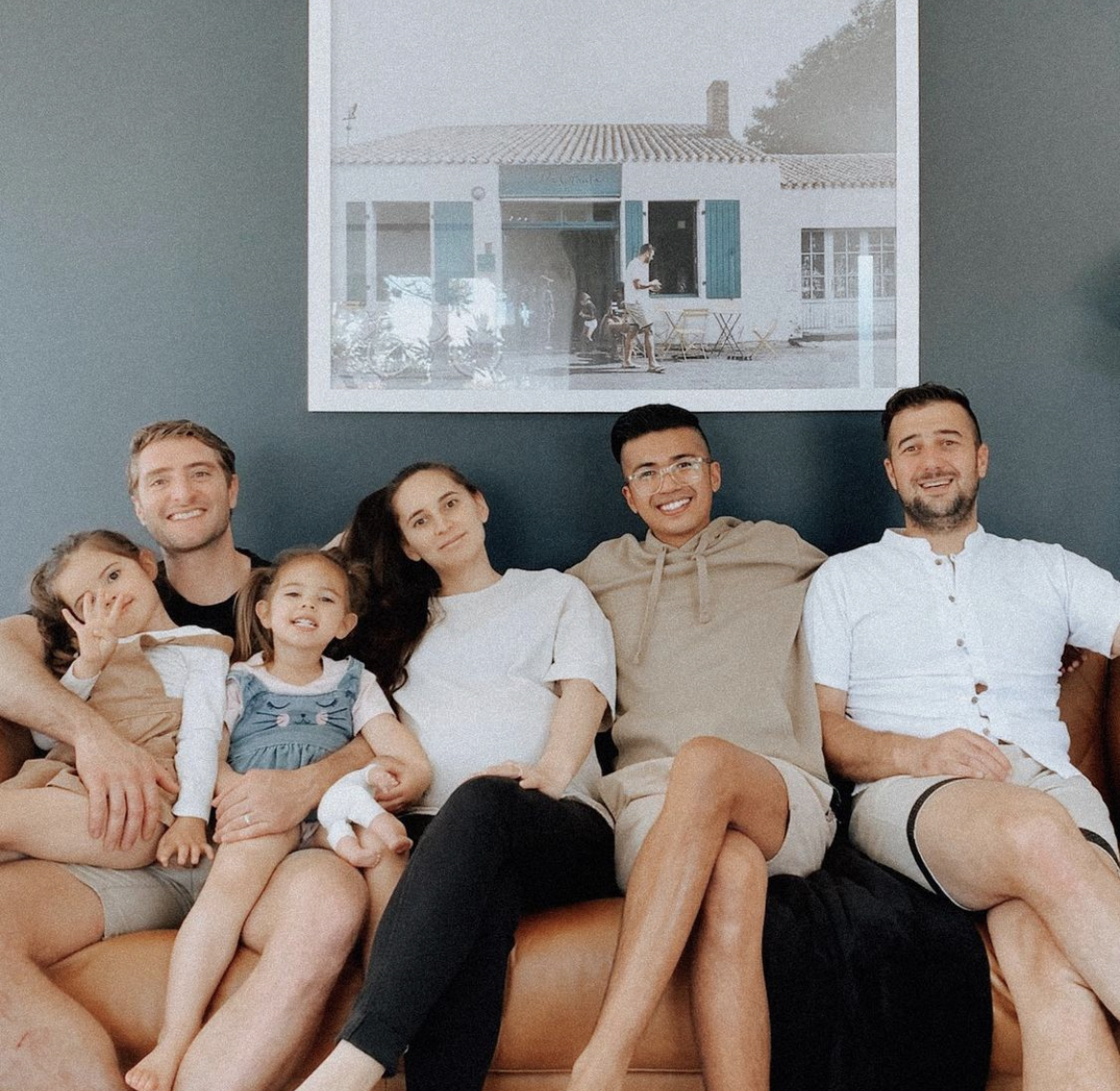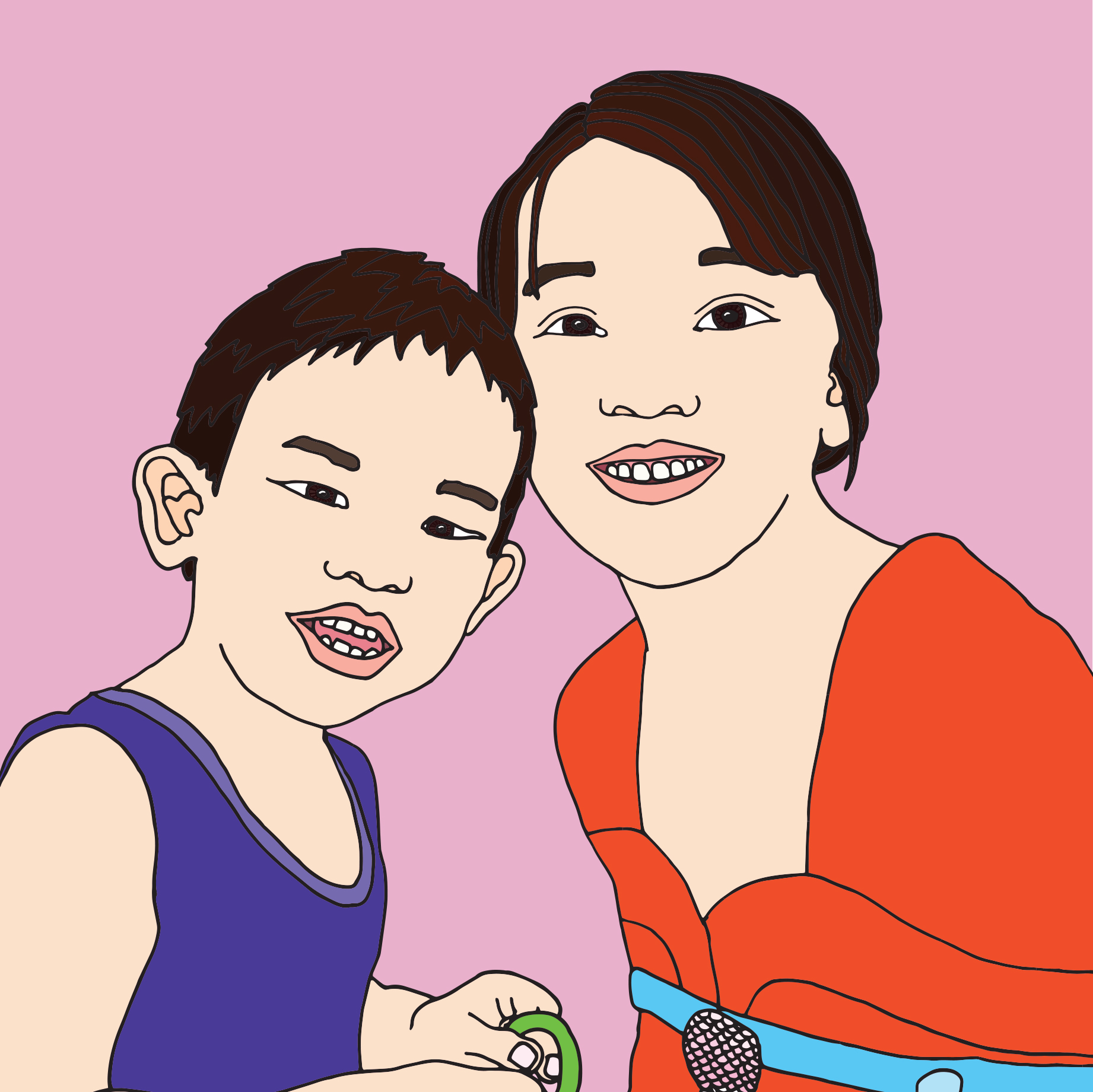Māmā Muse: Casarah Cooper
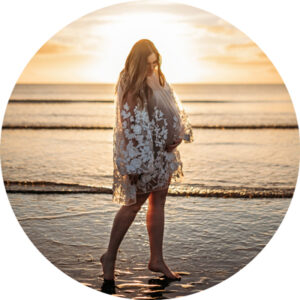
We spoke to Casarah Cooper, māmā to three beautiful tamariki and founder of The Mum’s Collective, about her experience with postnatal depression and anxiety, the transition from one to more, and finding joy in the small, magical moments of motherhood.
Kia ora Casarah. Can you start by introducing yourself?
Kia ora! I’m Casarah Cooper and we are an Auckland family of five, going about the normal day-to-day routine that is raising children in New Zealand. My husband works in the city and I am currently a stay-at-home mum with some sidelines that keep me busy during school and preschool hours. We have three little loves that keep us on our toes, Talulah (5), Dixie (3), and Nash (10 months) and there is a never a moment’s peace; it’s a beautiful chaos in this household. I have a photography business, curated content and use my social media as a form of income.
How has your journey to pregnancy been with each child? Did you plan to conceive when you did?
My journey to the three kids has been very different with each. I met Jase on Tinder, we planned to start trying for a baby within a few months and Talulah was born on our first anniversary together. She was by far my easiest pregnancy, being able to rest and take the time when I needed was a luxury I didn’t know I had, until I had more children. After Talulah and getting engaged, we tried for two years to get pregnant and experienced a loss that has given me a lot of trauma to work through and is still unresolved. I found out I was pregnant with Dixie the day after my hens do, after trying for so long we were over the moon – I was 20 weeks pregnant at our wedding and keeping up with a toddler was a new level of exhaustion. Our latest addition, Nash was a universal surprise. My husband had said no more babies after he turned 45 and I found out on his 45th birthday that I was pregnant with Nash, just as we entered a lockdown. His pregnancy was the hardest of the three which I will go into later on.
Can you give us an overview of your births with your babies?
I have had three different births and I love to tell people about them. My waters have all broken at 1am each time… it’s a crazy coincidence.
Talulah was a week overdue and as she was my first I really didn’t know what to expect. I wanted to have her without pain medication, but in hospital so I was in a safe and controlled environment. She was born in hospital with my partner at my side on our one year anniversary at 5:37am and 8lb. There really is nothing like that first baby, the time is so precious and you learn so much. Dixie was our second and as I’d had Lu without complications and my pregnancy was straight forward, we opted for a homebirth. My husband wasn’t too keen but came around to the idea. I had all confidence in my body and my midwifery team. Dixie was also born at 5:37am, weighing 9.5lbs, in Talulah’s bedroom. Her birth was my favourite as I was confident in my body and I knew what was happening. Nash was a lockdown baby, his whole pregnancy was riddled with worry about the birthing process and what would be. Whilst I knew I could have a homebirth mentally, I was physically worried about the other children and what would happen with restrictions. My waters broke again at 1am but I ended up not progressing and needing to be induced in hospital. At that stage, I opted for the epidural which I hadn’t had before and enjoyed a restful lead up to the birth. He was born at 2am but I felt more disconnected from his birth than the others. With all three, I went to Birthcare afterwards and would highly recommend it to others to get that time with your baby. If you do go, don’t be afraid to ask for help, they will take your baby so you can sleep, they will watch them while you shower – ask and you shall receive.
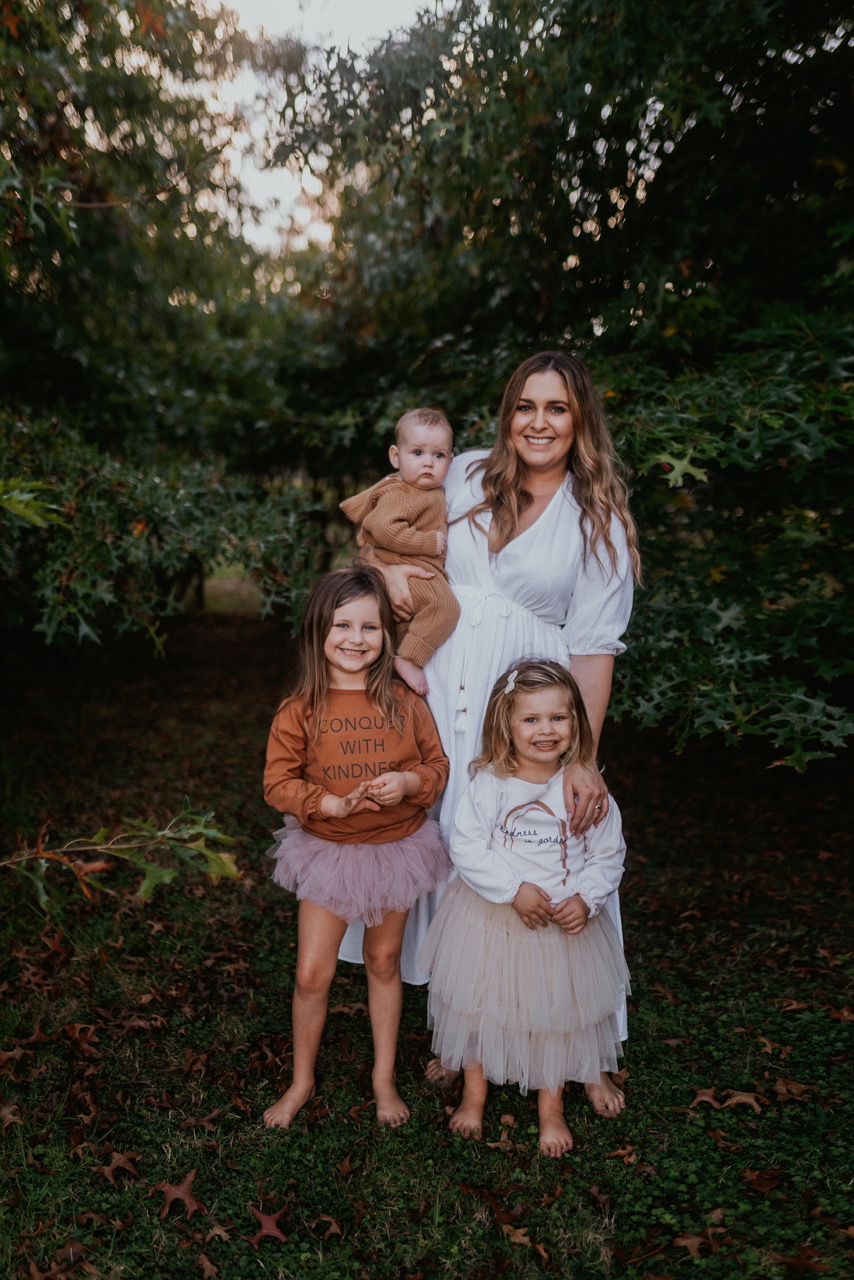
You’re very open about discussing your experience with postnatal depresssion and anxiety. Since becoming a mum, when and how has it occurred for you?
My journey with postnatal depression has been a textbook journey that has evolved with each baby. I didn’t believe I was an anxious person before having children but after Talulah was born I slowly slid down that depression hole. It was picked up by my GP at 6 weeks but everyone else told me that it was just normal mum tiredness and hormones. It wasn’t. I was put on medication and when she was 5 months old I took myself off it without GP discussion, which was a mistake. At 6 months 1 day, I have been at my lowest with all three babies, each time worse than before which is very common. Depression and anxiety is like two sides of a coin, they can flip and change. It wasn’t until Dixie was born that I experienced anxiety. I should’ve known better and seen the signs but I felt like I needed to be strong and had this idea of the perfect mum-of-two in my head. I experienced my first panic attack when I found out I had postpartum hypothyroidism – my husband called an ambulance as we didn’t know what was happening. It took a year to come out of that state of anxiousness and I was still on medication when I fell pregnant with Nash, which I had to quickly come off due to the high risk nature of that specific medication and its links to heart defects. This was the hardest part of my pregnancy with him. I had extreme withdrawals, went into a Level 4 lockdown, was trying to work from home with the girls and had not told work that I was pregnant so was hiding how debilitatingly sick I was. Through my pregnancy with Nash I didn’t seem to experience anxiety but I did feel a disconnect. After he was born it came back at the 4-6 week mark and quickly escalated again. I am currently managing my dose to find the right mix and it is an ongoing battle I am very proactive with talking about on social media to raise awareness.
How does your depression and anxiety manifest for you in terms of signs that you aren’t okay? What has helped you get back to your ‘normal’ or ‘good’ self?
I remember driving down the road after a school drop when Nash was a few weeks old and saw two mums walking with prams and I burst into tears thinking how nice it was that they had someone and I was so lonely, yet I wasn’t lonely at all, I had a great support system. For me, that was the first sign things were not okay as I didn’t want to reach out to anyone but I also really needed too. My triggers are health related, I have a complete fear of dying which is linked to my miscarriage trauma and any time my kids or I get sick, I really go to worst case scenario. I physically manifest so I make myself sick worrying about being sick or something happening. The biggest thing that has helped me has been medication, which has brought me back to a level of normal where I can work on myself and do the things that will help long-term with my mental health. Listening to podcasts and unpacking my anxiety has helped, journaling, sharing my story online where I can connect with others so I know I am not alone, exercising, meditation and massage therapy are all things that help me. I have learnt that cutting out alcohol – which I previously used as a calming mechanism – has helped, and taking a range of supplements from BePure to help with my thyroid and hormones.
There can be lots of misinformation when it comes to mental health and postpartum care. What are some of those misconceptions or unknowns that you’re especially intent on talking about and sharing with other māmā?
I find it really interesting that people assume or believe that you can only suffer postpartum anxiety or depression within those first few months, when in fact the most common time to be at your worst point is 6-8 months postpartum. This is when your hormones have levelled out, you’ve been pushing along all that time, putting your tiredness and emotions down to sleep deprivation and being a new mum, but it’s often not until you hit that 6 month phase and drop off the cliff that you look back and realise “Wow, I was never okay. I wish I had seen it earlier.” Raising awareness on the delay of this is one of my passions. Postpartum depression or anxiety doesn’t discriminate and is a hormonal imbalance.
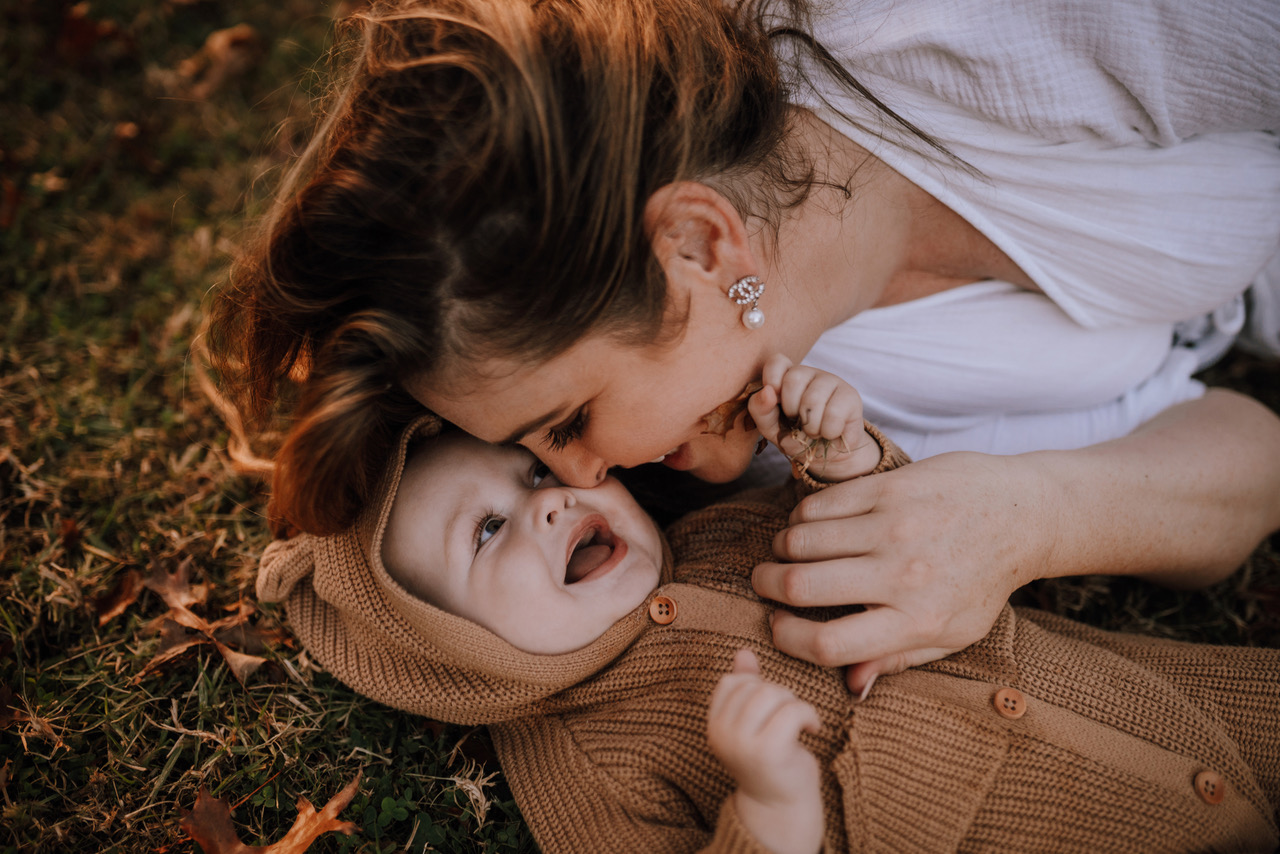
How have you found the transition from one to two, and two to three? What practical advice do you have for other māmā who are expecting another baby?
I personally found the transition from no children to being a first-time parent the hardest. So many internal doubts and worries. When Dixie was born I was confident in parenting and when Nash was born it was just a bit more hectic.
Organisation is key, if I go to bed and the washing is folded, the dishwasher is empty and clothes are out for the kids, then our mornings are much less stressful, they run smoothly. When the kids were really little I would set up toys or a play prompt for them to get up and interact with to give me time to get ready.
They say ‘it takes a village’ and you’ve built one online with the Facebook group, The Mum’s Collective which has over 35k members. Tell us about your community and why this has been so integral to your motherhood experience.
I started The Mum’s Collective on a whim one afternoon 4 years ago when I wanted to connect with mums who were experiencing the same postpartum struggles as myself and couldn’t find a group like it. It grew quickly and is now a support forum for women, mainly across New Zealand and Australia, but we are open worldwide. It’s been a wealth of support for me and others who can literally ask anything (except medical advice) and connect with others for advice, support or direction with their parenting journey. When you feel isolated, it’s a great tool to jump on and search for a topic or ask a burning/embarrassing mum-life question.
What has motherhood taught you about yourself?
Motherhood has taught me more than I could ever imagine but has really brought life back to appreciating the simple things and seeing life through your children’s eyes. That time really is the best gift; life is short but filled with so many magical moments. A cuddle and laughter can cure so many things and teach us not to stress about the small things. I’m excited (and petrified) to see what lessons my kids continue to teach me as they grow up. I hope they look back at their childhood the way I do and remember all the love that was around them.
Tell us about a māmā who is your muse.
It may seem cliché but my own mum is my Māmā Muse. She was an incredible parent growing up, continues to foster that with my own children and has far better interior and fashion sense than I do. I am lucky to also have two sisters who are also mothers who I learn from daily and inspire me.
